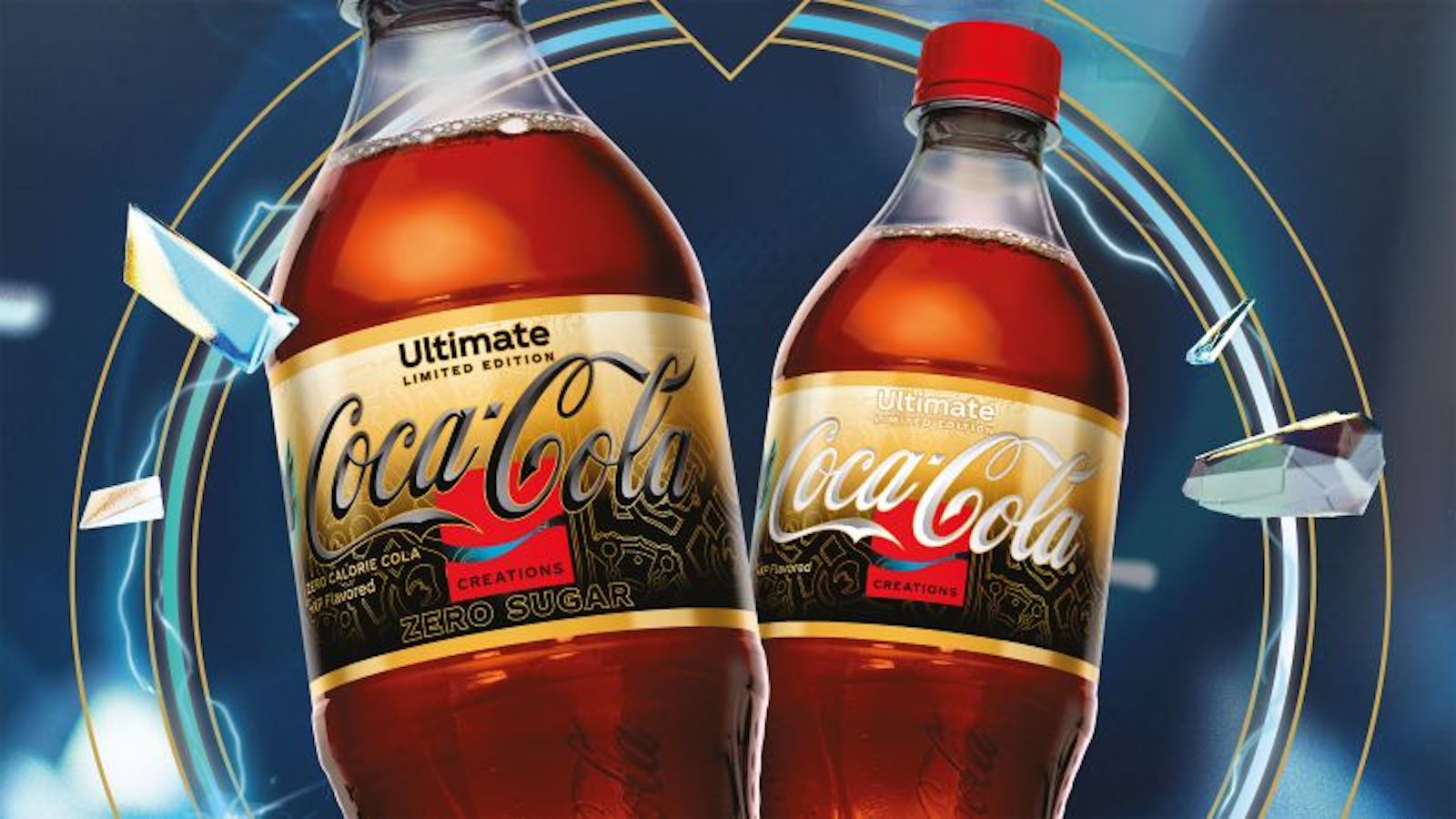Coca-Cola introduces its new flavor for gamers
Coca-Cola launched a new limited edition flavor for “gamers,” a demographic increasingly sought after by major food and beverage brands.
For this new flavor, called Coca-Cola Ultimate, the soft drink maker partnered with Riot Games, which publishes the online multiplayer game League of Legends. Coca-Cola Ultimate will be available in U.S. and Canadian stores starting June 12 for a limited time in regular and sugar-free varieties. Worldwide, it will only be available sugar-free and will launch this week.
A few years ago, Coca-Cola Co. reduced its product portfolio to focus on its core brands, including Coca-Cola. But sugar-free soft drinks have been a dormant category for years, so Coca-Cola has to work to attract new people.
The line of abstract flavors, each associated with a digital experience, is designed to spark enthusiasm for Coke among younger consumers by focusing on music and online gaming.
Ultimate is supposed to appeal especially to video game players. And like most of Coca-Cola’s other limited-edition beverages, the actual flavor will remain a secret.
Mystery flavors
Other quirky flavors in Coca-Cola’s Creations platform, which began launching a year and a half ago, include Starlight, inspired by space; Dreamworld, which supposedly tastes like dreams; and Byte, which supposedly tastes like a pixel. Coca-Cola has also partnered with musicians Rosalia and Marshmello to create limited-edition flavors.
As in most of these cases (Marshmello’s flavor had notes of strawberry and watermelon), Coca-Cola won’t say what Ultimate tastes like.
“We’re never going to answer that question” in a “straightforward way,” said Oana Vlad, Coca-Cola’s senior director of global strategy. “They are mystery flavors. But they always have to taste like Coca-Cola. “The flavor profile is always, let’s say, 85 to 90% Coke. And then that 10 to 15% of something unexpected.”
Ultimate is supposed to offer drinkers the taste of the “experience points” League of Legends players earn based on the time they spend playing, according to a company statement announcing the product.
The flavors are not intended to become a permanent offering, noted James Quincey, the company’s CEO, during the Redburn CEO conference held in November. Instead, they are meant to help build buzz around the company’s core product.
“They’re more appealing and interesting than a flavor, a Coke with vanilla or something like that,” he said. “Testing the boundaries … that’s about engagement with consumers.”
Coca-Cola’s marketing approach seems to be working. In the first quarter, the Coca-Cola brand grew in every geographic region, according to the company, thanks in part to interest from the coveted Generation Z market.
“If we were to take the U.S. … we can see that the growth of the Coca-Cola franchise is not just due to increased uptake, but increased engagement and uptake of Generation Z,” he said.
Flavors are also a way to reach people online, in games and beyond.
Virtual Experiments
Limited-time offers have been combined with virtual experiences. The Starlight can included a QR code that gave access to a holographic concert by Ava Max. Those who sampled Dreamworld could purchase virtual goods for their avatars online.
“The digital component (…) is really at the heart of what Creations is,” Vlad said.
With this platform, Coca-Cola is entering the world of music and video games, a fertile ground for beverage companies.
Red Bull has been involved in the world of e-sports for years, and PepsiCo has developed a product, Mountain Dew Game Fuel, specifically for gamers. Recently, major snack manufacturers have also been betting on gaming.
And the relationship between Riot and Coca-Cola goes beyond limited-edition flavor. The two companies announced a multi-year partnership in March of last year, and had previously partnered between 2014 and 2016.
With Creations, Coca-Cola can target players in more ways.
Byte, the pixel-flavored cola, debuted in Fortnite. The Marshmello flavor appeared on player Loserfruit’s Twitch channel.
Ultimate, of course, is related to League of Legends. Players can earn Ultimate emotes (a sort of in-game reaction Bitmoji) when they reach certain goals in the game. A QR code on the bottle leads to an Ultimate filter for Instagram.
Ultimate is “the crown jewel of our ongoing and evolving partnership,” said Eric Krause, global head of marketing for League of Legends Games at Riot Games.

